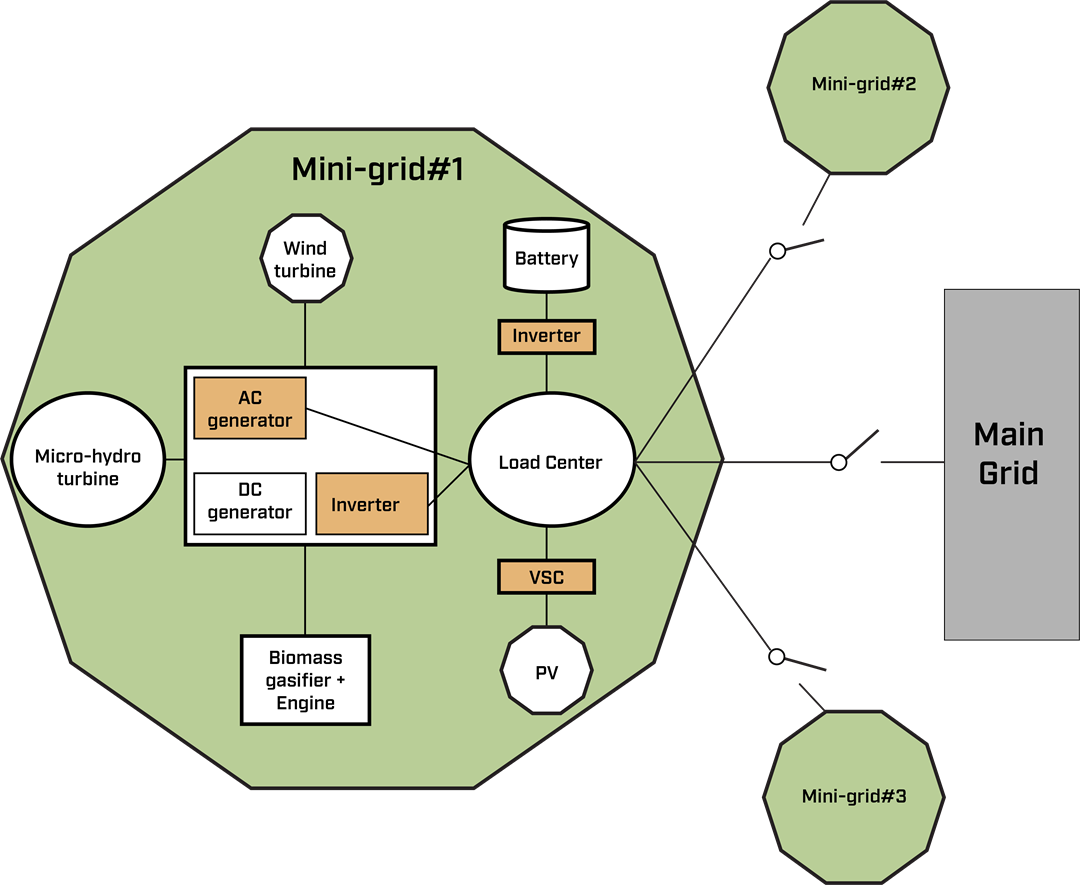Mini-grids are localized power networks, usually without infrastructure to transmit electricity beyond their service area. To address the electricity access problem, the government of India is planning to deploy at least 10,000 RES based mini-grid projects across the country within the next 5 years. The integration of several mini-grids into the conventional power grid can facilitate the electricity supply to unserved population in the rural areas. However, it also increases the complexity of the power system and requires new operational and control strategies as well as clearly defined interconnection, islanding and seamless transitioning requirements.
Mini-grids are heterogeneous in nature since they can include different type of energy sources and generators technologies. Hence, their dynamic operational characteristics varies from one another, for example, a mini-grid with power electronic converter interfaced RES will behave differently compared with a mini-grid with rotating generators for the same transient disturbance or change in operating condition. The integration of two heterogeneous mini-grids is a challenging task especially if each of the two mini-grids is serving appreciable number of local loads. Hence, it is critical to define protocols for connecting and disconnecting mini-grids without affecting the stability and voltage quality of the grid.
In this project, synchronization strategies will be drafted for multiple mini-grids by carefully driving the relevant synchronization criteria. A reference controller will be selected in the beginning of the project from the range of controller schemes available in the literature. Furthermore, in this project, the developed interconnection protocols and controllers will be validated numerically and experimentally.
Partners:
- SINTEF Energy Research
- Indian Institute of Technology Bhubaneswar

